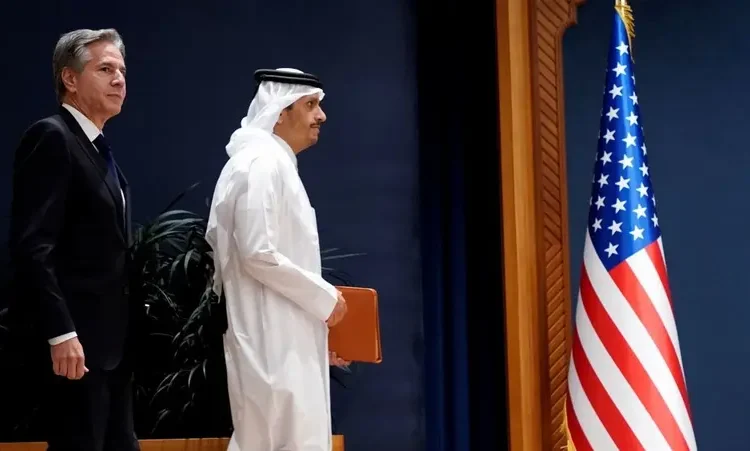Qatar’s Prime Minister and Foreign Minister, Mohammed bin Abdulrahman bin Jassim Al Thani, is scheduled to visit Tehran next week, marking the first official visit since the establishment of the new government in Iran. Sheikh Mohammed bin Jassim, who will arrive in Tehran on Monday, will meet with the new Foreign Minister, Abbas Araghchi, as well as the President, Masoud Pezeshkian.
This trip holds significance from two perspectives. First, the presence of the Prime Minister of Qatar underscores the success of the “neighborhood doctrine,” which prioritizes resolving issues with neighboring countries or at least controlling tensions. Over the past five years, this approach has largely succeeded, as evidenced by the significant progress in Iran’s relations with neighboring countries, particularly the Persian Gulf states, culminating in the restoration of relations with Saudi Arabia in March 2022.
The visit of Sheikh Mohammed bin Jassim conveys that the neighborhood doctrine has been effective and should remain unchanged. Additionally, the relationship between Tehran and Doha is unique; Iran supported Qatar during the 2016 crisis, and their relations have continued to grow since then. From Iran’s perspective, there are no limits to developing relations with Qatar as a friendly nation, and this visit sends a clear message about the deep ties between the two countries. However, the economic aspect of their relationship has not kept pace with their political ties, so focusing on enhancing trade relations through a preferential trade agreement could be a key agenda item during the negotiations.
One of the key issues to be addressed is the utilization of the $6 billion of Iranian funds transferred from South Korea to Qatari banks. Although there were follow-ups and discussions during the previous Iranian administration, this matter remains significant for the new government and is expected to be discussed in today’s and future meetings.
In late May, Nasser Kanaani, the spokesman for Iran’s foreign ministry, responded to a question about this issue, stating, “The use of these funds follows a specific mechanism, and there has been no change in how these financial resources are managed. If necessary, the Central Bank [of Iran] will provide further information.”
Second, Qatar plays a crucial role in the five-party negotiations involving the United States, Egypt, Hamas, and Israel. The last round of these negotiations, in which Hamas did not officially participate, was held in Doha. Contrary to the American media’s portrayal of progress in these talks, reports indicate that Israel has effectively thwarted Joe Biden’s May 24 plan by insisting on its preconditions regarding the Philadelphia axis, Netzarim, and the exchange of captives.
The United States aims to persuade the Resistance front, through Qatar and Egypt, to give diplomacy a chance to end the war in Gaza within the framework of Biden’s May 24 plan, rather than responding militarily to Israel’s provocative actions, such as the assassinations of late Hamas political leader Ismail Haniyeh in Tehran and Hezbollah commander Fuad Shukr in Beirut. The current situation suggests that Tel Aviv has no interest in halting its attacks on Gaza, and the Israeli Prime Minister, Benjamin Netanyahu, will likely continue the conflict until the American presidential elections, as it benefits him domestically and a ceasefire would harm Donald Trump’s campaign.
From Iran’s perspective, the Doha negotiations are essentially unrelated to its right to legitimate self-defense. While the Resistance front in Tehran and Beirut has not closed the door on diplomacy and has taken the opportunity to consult with all parties, maintaining deterrence through a response to Israel cannot be overlooked.






